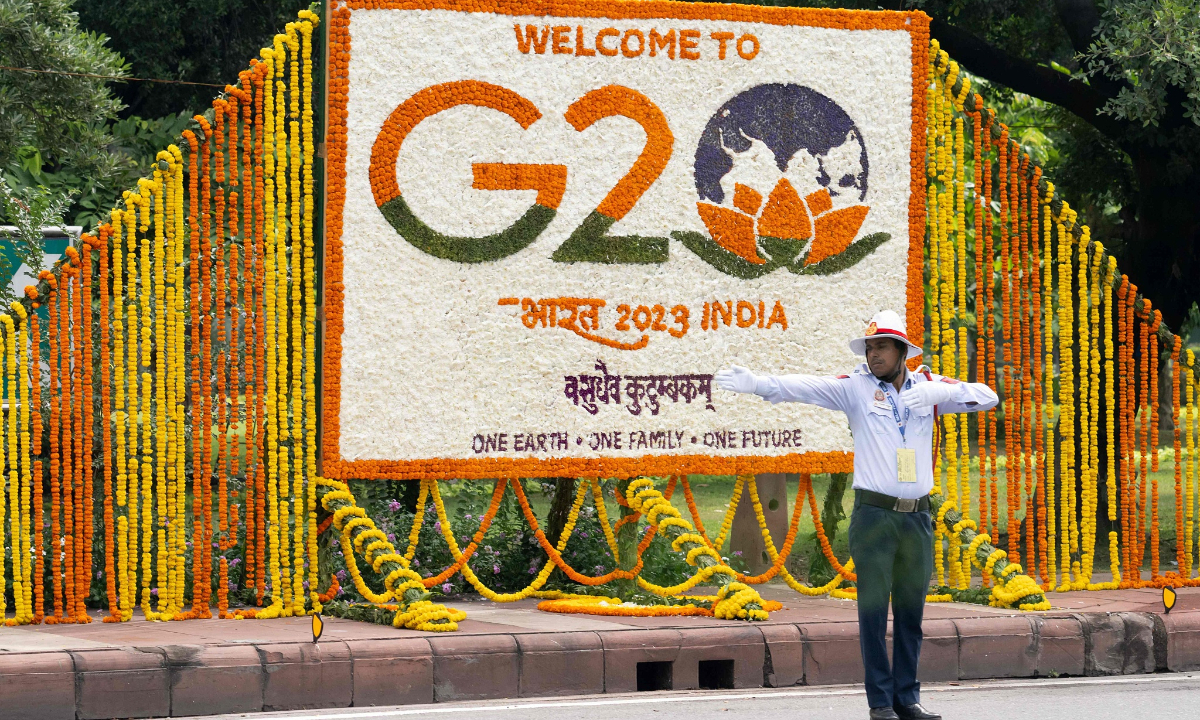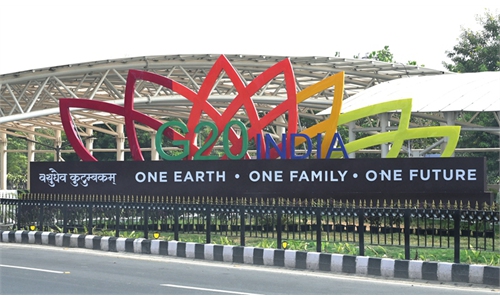China's participation in G20 summit to offer Chinese wisdom in helping Global South: experts

Photo: VCG
China's participation in the virtual G20 Leaders' Summit held on Wednesday will inject Chinese wisdom on how to boost the sluggish world economy, and show China's willingness to play a more active role in helping the development of the Global South, Chinese experts said.
Indian Prime Minister Narendra Modi chaired the virtual summit of G20 leaders on Wednesday evening, which discussed the implementation of the Delhi Declaration adopted in September and several new challenges that have emerged since then.
Chinese Foreign Ministry Spokesperson Mao Ning announced on Tuesday that at the invitation of India, Premier of the State Council Li Qiang was scheduled to attend the Virtual G20 Leaders' Summit.
In September, the G20 New Delhi Summit reached an important consensus on taking action through partnership, Mao said on Tuesday. She noted that given the turbulent international situation and the lack of impetus for world economic recovery, it is all the more important for the G20 to further strengthen its partnership, work together to address global challenges and make positive contributions to world economic recovery and common development.
Russian President Vladimir Putin and Canada's Prime Minister Justin Trudeau will attend the virtual summit. This will be the first time that Trudeau will come face to face with Modi after a bitter diplomatic standoff between New Delhi and Ottawa in September over the killing of Hardeep Singh Nijjar, a prominent Sikh leader as well as a Canadian citizen
Russia was represented by Foreign Minister Sergei Lavrov during the Delhi G20 summit in September.
During a press conference on Tuesday, India's G20 Sherpa Amitabh Kant described the virtual summit as a "rare and exceptional" opportunity for Modi to interact with world leaders for a second time during India's G20 Presidency before it passes on to Brazil in December.
India attaches great importance to the G20 summit held this year and places special emphasis on the outcomes achieved in September, Qian Feng, director of the research department at the National Strategy Institute at Tsinghua University, told the Global Times. He noted that holding another summit after the G20 New Delhi Summit is rare, showing that India intends to enhance its international standing, especially before the general election next year.
However, experts have little expectation this summit will yield substantial results, as it is overshadowed not only by the ongoing Russia-Ukraine crisis, but also the Palestinian-Israeli conflict, which are affecting the stability, security and economic recovery of the world, said Qian. Also, the participants at the summit, such as the US and Russia, have different views on the solutions to these crises, so they are not likely to reach an agreement.
After marathon negotiations, the New Delhi G20 summit finally managed to reach a joint declaration on September 10, avoiding the embarrassment of a fruitless summit. The virtual summit will take forward key outcomes and action points from the September summit as well as reviewing developments since then. The deliberations of the second edition of the Voice of the Global South Summit, held virtually on November 17 by India, will also feed into the discussions.
The Hindustan Times, citing people familiar with the matter, reported on Saturday that the Palestinian-Israeli conflict and the Ukraine crisis are expected to be discussed at the virtual G20 summit. Unlike the in-person summit in September, an outcome document such as a leaders' declaration is not expected.
According to a statement issued by India's Ministry of External Affairs on Tuesday, India has worked throughout its G20 presidency to ensure that the concerns of the Global South receive due recognition. "We've also seen the inclusion of the African Union as a permanent member of the G20," the statement said.
Experts believe that China's participation in this summit can offer its wisdom on helping the development of the Global South. "China, as a developing country, is also willing to play a more active role among Global South countries," Hu Zhiyong, a research fellow at the Institute of International Relations at the Shanghai Academy of Social Sciences, told the Global Times.

